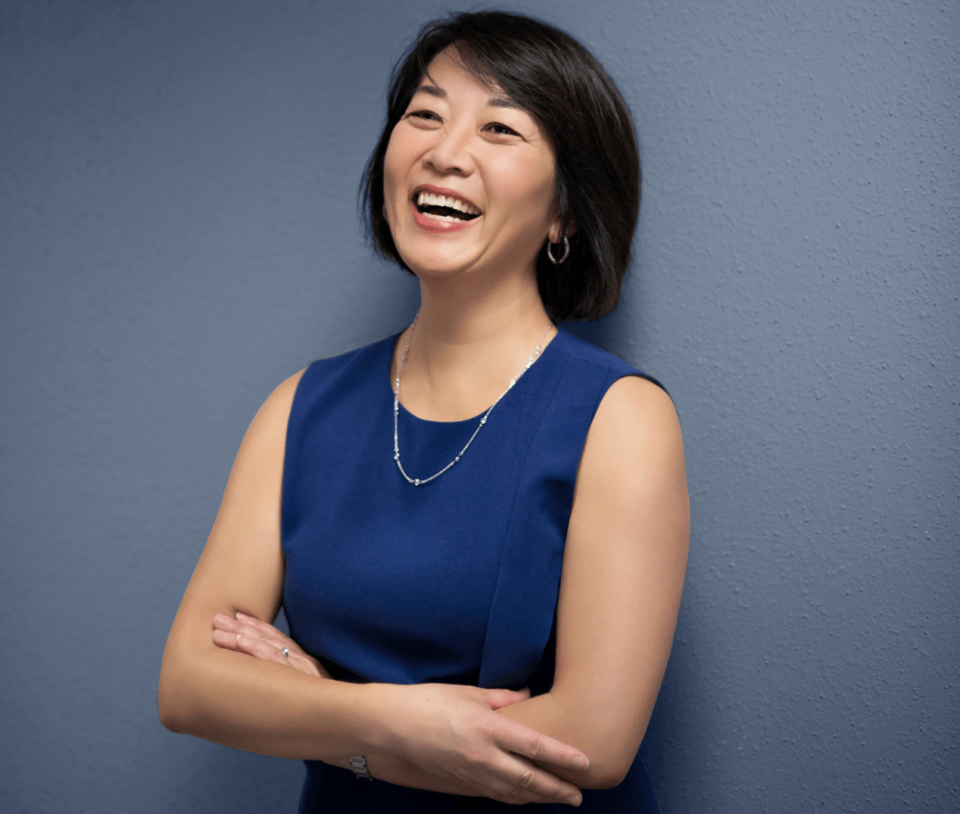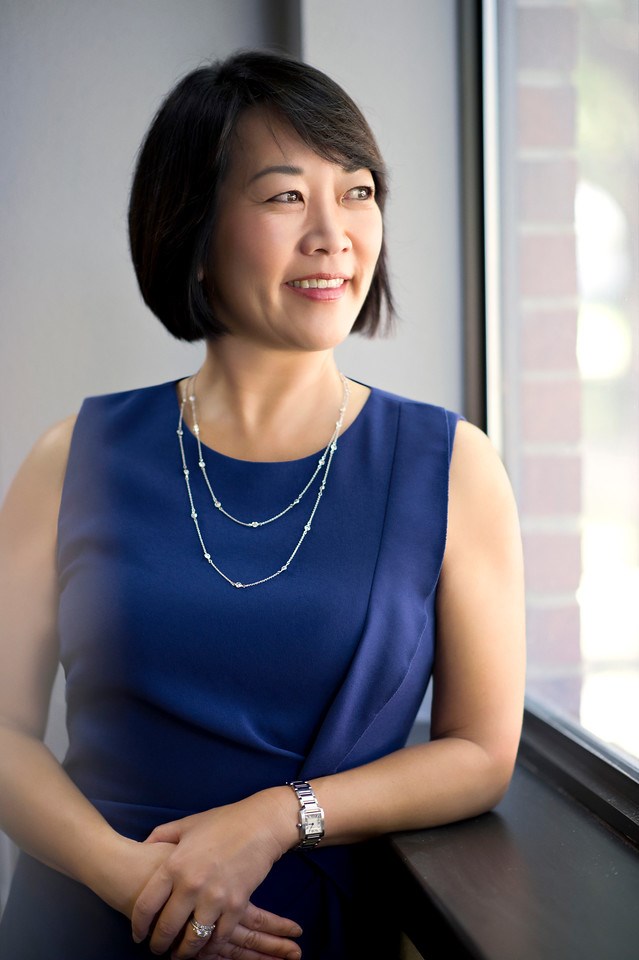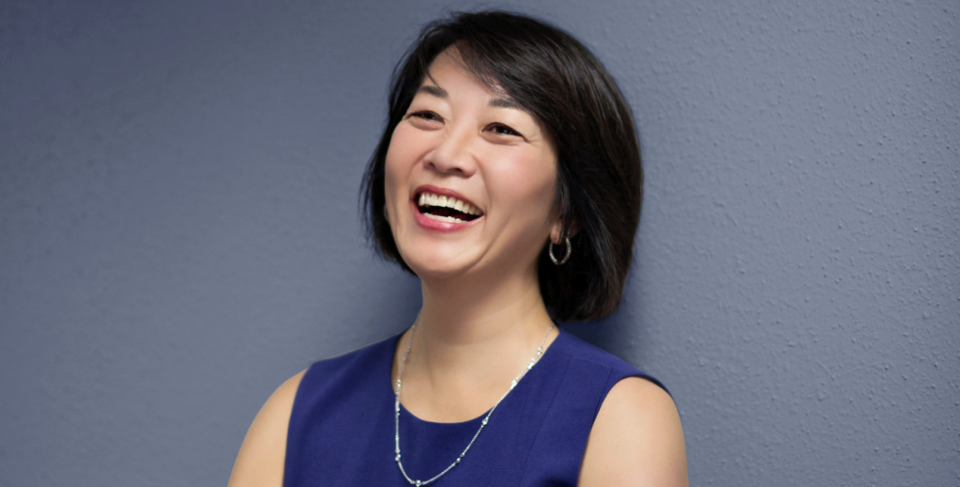
Heading up the relocation of Toyota Financial Services, Toyota GVP Julia Wada is an extraordinary female leader whose belief in collaborative leadership has landed her at the top
It’s not everyday you meet a bona fide rocket scientist. It’s an accolade so far in Julia’s past she responds to it with a nonchalant “Well, many, many years ago, yes.” And that’s exactly the point because since then, she’s been busy climbing the ranks to sit on the upper echelons of one of the world’s largest automakers and Plano’s newest corporate resident—Toyota.
As keynote speaker of our 15th annual Women in Business event on September 30, 2016 we sat down with this savvy businesswoman to chat leadership, gender bias and, of course, Toyota’s corporate relocation.
With a Bachelor of Science degree in Mechanical Engineering and a Master’s degree in Management, Julia is a prime example of a woman succeeding in male-dominated fields and highly demanding roles. Ironically, however, she does not see herself as a woman in business. She is a woman, but more importantly, she is a professional whose hard work, dedication and ability to lead has afforded her great upward opportunities.
Starting her career as program manager and engineer for Lockheed Missiles & Space Corporation, Julia joined Toyota in 1991 with Toyota Motor Sales (TMS) as part of the Graduate Management Associate program. Today, 26 years later, she’s the Group Vice President of Human Resources, Real Estate & Facilities and Business Technology Solutions for Toyota Financial Services. And, if you think that’s a mouthful, just imagine the huge amount of responsibility which must come with such an all-encompassing role.
“I’m responsible for HR and technology and the move for the finance company.” Reporting directly to Mike Groff, President and CEO, she confides that her current focus is ensuring a successful transition to Plano. “I’m really committed to getting our team here and bringing on board Toyota team members who I hope will be able to have rich careers with us. We want to build a culture here where we can attract talent that will want to stay and grow with us.”
Yes, they’re bringing jobs, people, businesses—in essence, an economic tsunami. Yet, the impact their relocation will have on our area is far more significant than we can even fully understand. Toyota aims to not only contribute to our community, but become part of the community as well.
“We want to build a great relationship with our community and be able to invest in the things that are important to our community and our customers in the local area. We hope to be able to have an impact on those causes and issues that are important here.”
And, they’ve already started. With Plano schools ranked some of the best in the nation, it’s no surprise that education is high up on our list of community priorities. And, Toyota is with us 100 percent, no matter how big or small the need.
Earlier this year, Toyota gave a $175,000 grant to a national two-generation family learning program aiming to provide a solution to the educational challenges facing low-income and ethnically diverse families. The program is currently running at Plano Family Literacy School and Sigler Elementary. They also donated $1 million to the Plano ISD STEAM Academy High School and, in contrast, helped fund the creation of 16 Little Free Libraries—local book exchanges, which promote literacy and bring neighbors together through the love of reading. Similarly, and in conjunction with Time Warner Cable and American Park Network, they have brought free Wi-Fi to all major City of Plano parks and recreation facilities.
Beyond education, you can probably say that at the core of the Plano community is philanthropy, or simply put, we care about each other. So does Toyota. Since announcing their move, they’ve donated several million dollars to a variety of causes including $1 million to DART for a scheme which gets seniors and disabled citizens in Collin County to and from medical appointments—at peak, providing 700 trips per day.
Did you know that in Collin County, one in five school-age children are food insecure? Toyota does. Not only are they working with the North Texas Food Bank in the fight against hunger, but they have also donated a Toyota Sienna minivan to Minnie’s Food Pantry, enabling them to deliver food to those in need.

Another way Toyota is immersing itself into the community is through the company’s involvement with the arts and music scene—the Toyota Texas Music Revolution and the Toyota Texas Fest, for example. Oh, and they’re the Official Truck Sponsor of the Texas Rangers.
They’re also leading the way in terms of the environment and not just with their wallet. In addition to donations totalling more than $2.5 million to the Texas Parks and Wildlife Department, Toyota’s new headquarters aims to be a model for energy efficiency and sustainability. Everything from LED lights to solar panels to high-efficiency building shells will help cut down on the amount of energy used on campus.
Of course, the innovations don’t end there. Toyota decided to think outside of the box when it came to reimagining the campus’ collaborative spaces.
“The whole campus was built to support a number of design principles. Innovation and collaboration are two important, really critical priorities—we call them North American Cultural Priorities—that we support through the work environment as well as our people policies and cultural behaviors.”
They’ve thrown tradition out of the window along with the majority of individual offices.
“We’re moving to an environment that’s going to be 50/50, where people will still have some individual workspace, but there’ll also be a variety of workspaces for different types of collaboration. Some of it will be large meeting rooms and others will be more unstructured work areas, such as touch-down areas or cafeteria areas, which can be multi-use. And, there will also be a quiet, head-down space, a library-type space. The idea is to have work spaces that support the different types and ways people need to work and allow team members to be able to choose the space they need for the work they need to do.”
It’s a change which suits Julia perfectly. Or, more accurately, her collaborative leadership style.
“I definitely enjoy working with others; I tend to be involved in areas that need change or communication support, and I need to bring teams along and leverage teams in order to make things happen.”
Perhaps, I should have said Toyota’s leadership style. You see, collaboration and communication support The Toyota Way beliefs—a set of principles and behaviors that underlie the company’s managerial approach.
“We believe the frontline, whether that’s the manufacturing line or the frontline with the customer, they’re the ones that know best about what really needs to happen. We always want to promote an environment where we’re hearing from all of our team members. And team members feel safe to speak up, to get their ideas heard and get needed changes made.”
And what about women in business? She didn’t say it, but Julia’s attitude to women in business can best be described in three words— “what about it?” You see, to Julia, and Toyota, there is nothing special or unusual about a woman in business. For her and her female colleagues, they are just “in business.”
Of course, that does not mean that Toyota is ignoring gender bias. To the contrary, they are actively working to combat it with unconscious bias training. “You really have to push yourself and think…is [this] really a justified thought or is it from some kind of bias that you have based on however you were raised.”
That’s not to say that women are not different. “There are some unique needs and differences that I think are important to try and support a female leader.”
What is the best way to support a woman in the workplace, or indeed, be a successful woman in business? Again, it comes back to collaboration, communication and community.
“The Platinum Rule: Treat people the way they would like to be treated, and try to understand who they are and what their needs are and not make assumptions about what they want, but really to try to understand who someone is as an individual.”
It’s a rule that holds true no matter who you are or what you do.




